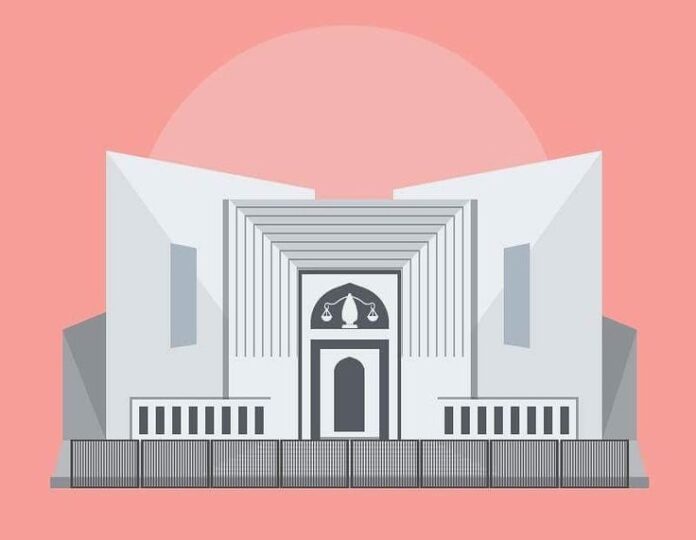The federal government has officially conveyed to the Supreme Court that the military trials of civilians involved in the May 9 riots, which were triggered by the arrest of former Prime Minister Imran Khan in a corruption case, have commenced.
This pivotal information was disclosed during a miscellaneous application in compliance with the top court’s order of August 3. The government, through this application, shed light on the fact that 102 individuals were apprehended in connection with the events of May 9 and 10, which also included attacks on military installations and establishments.
This announcement comes as a five-member bench of the apex court, led by Justice Ijazul Ahsan and comprising Justices Munib Akhtar, Yahya Afridi, Sayyed Mazahar Ali Akbar Naqvi, and Ayesha Malik, is poised to deliberate on petitions challenging the trial of civilians in military courts.
The government, in its application, asserted that the accused individuals had been taken into custody during May of the current year and have remained incarcerated ever since. They were apprehended under the Pakistan Army Act, of 1952, in conjunction with the Official Secrets Act, of 1923, due to their alleged involvement in attacks on military installations and establishments.
The government’s application emphasized the significance of conducting and concluding these trials promptly to ensure fairness in dealing with the accused individuals. It stated that this was imperative not only to acquit those who might merit it but also to release those who might be deserving of minor sentences and have already served time in custody.
Moreover, the application pointed out that if any of the accused individuals are convicted, they will have the option to avail themselves of remedies provided by the law.
Crucially, the government’s application made it clear that the trials of these accused individuals would remain subject to the outcome of the proceedings in the titled petition, thereby acknowledging the importance of the Supreme Court’s deliberations.
This development follows an August 3 order by the then-Chief Justice of the Supreme Court, Umar Ata Bandial, in which he assured that the court would prevent any unconstitutional actions by the country’s military while considering the pleas challenging the trial of civilians in military courts. A six-member bench, led by the Chief Justice, heard the case, and it was adjourned indefinitely after the Attorney General for Pakistan, Mansoor Usman Awan, pledged that military trials would not proceed without notifying the apex court.
In response to the government and military’s actions, a group of prominent figures, including PTI Chairman Imran Khan, former Chief Justice Jawwad S. Khawaja, lawyer Aitzaz Ahsan, and civil society members, such as Pakistan Institute of Labour Education and Research (Piler) Executive Director Karamat Ali, petitioned the Supreme Court to declare the military trials as “unconstitutional.”
The initial stages of the hearings witnessed objections regarding the bench formation and recusals by judges. Ultimately, a six-member bench, featuring then-Chief Justice Bandial, Justice Ijaz Ul Ahsan, Justice Munib Akhtar, Justice Yahya Afridi, Justice Sayyed Mazahar Ali Akbar Naqvi, and Justice Ayesha Malik, presided over the petitions.
As this consequential legal battle unfolds, the nation eagerly awaits the Supreme Court’s verdict, which will play a defining role in addressing the complex issues surrounding the military trials of civilians.


